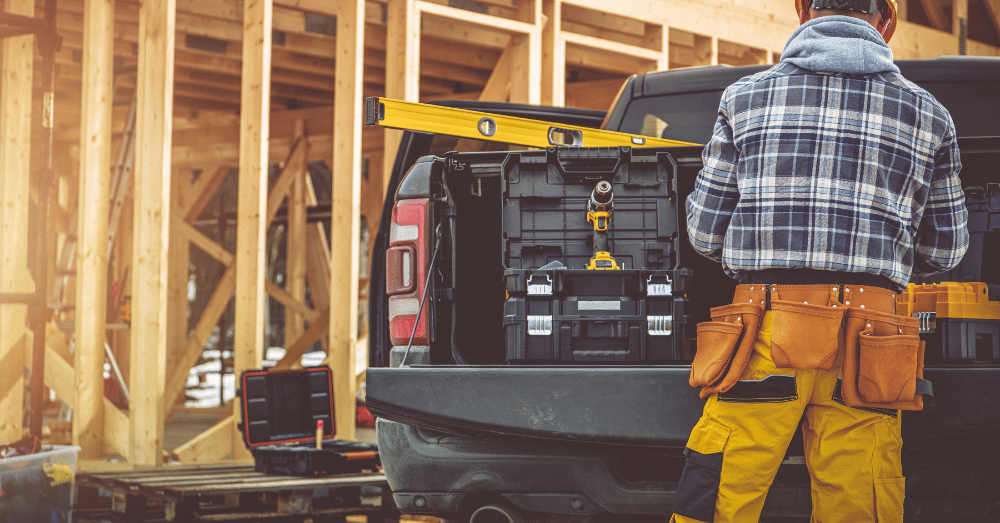Picking the wrong pickup truck for your projects is like bringing a butter knife to a steak dinner. You’ll get the job done eventually, but it won’t be pretty. Whether you’re hauling lumber for a weekend deck build or running materials to job sites every day, matching your pickup to your actual needs saves you time, money, and a whole lot of frustration.
- Compact trucks work great for light hauling and occasional DIY projects with better gas mileage
- Midsize pickups hit the sweet spot for most homeowners and small business owners
- Heavy-duty trucks handle the big stuff when you really need serious muscle
Compact Trucks: The Smart Choice for Light Work
If you’re the type who tackles weekend projects around the house but doesn’t need to haul concrete blocks every Tuesday, compact trucks make a lot of sense. The Honda Ridgeline and Ford Maverick lead this category, and they’re pretty different animals.
The Ridgeline can tow 5,000 pounds and haul 1,583 pounds in its bed. That’s plenty for most home projects (think mulch runs, picking up a new refrigerator, or pulling a small boat to the lake). What makes it interesting is how it drives more like an SUV than a traditional truck. Some folks love this, while others think it’s too soft.
Ford’s Maverick takes a different approach. It’s truly compact, starts around $25,000, and sips gas like a car. The trade-off is less capability, but for someone who needs a pickup truck twice a month, it makes perfect sense.
Here’s what these trucks handle well: garden center trips, small furniture moves, weekend camping gear, and light trailer duty. They struggle with: heavy construction materials, serious off-road work, and anything that needs real grunt.
Midsize Trucks: The Goldilocks Zone
Most people end up here, and for good reason. Trucks like the Chevy Colorado, Ford Ranger, Toyota Tacoma, and GMC Canyon give you serious capability without the size and fuel penalty of full-size trucks.
The Colorado and its GMC twin can pull 7,700 pounds when properly set up. Their turbocharged engines deliver surprising power while still getting decent mileage around town. These trucks shine when you’re building that deck – they’ll haul a full load of pressure-treated lumber, your tools, and maybe even your buddy in one trip.
Speaking of deck building, here’s some real-world math. A 200-square-foot deck needs about 1,500-2,000 pounds of materials once you add up the joists, decking boards, concrete for posts, and all the hardware. A midsize truck typically handles 1,600-1,800 pounds of payload, so you’re covered with room for tools.
The Ranger focuses more on off-road capability with its Raptor variant, while the Tacoma has built a cult following among outdoor enthusiasts. All of them work great for contractors who don’t need maximum capability every day.
Full-Size Half-Tons: America’s Workhorses
The Ford F-150, Chevy Silverado 1500, Ram 1500, GMC Sierra 1500, and Toyota Tundra dominate American driveways because they hit the sweet spot between daily usability and serious work capability.
Right now, the F-150 leads the towing game with 13,500 pounds when you option it correctly with the 3.5L EcoBoost and Max Tow package. Its payload hits 2,445 pounds, which means you can load up pallets of materials or a fully equipped contractor setup without sweating the numbers.
Ram’s new Hurricane engines pack a punch – the high-output version makes more power than Ford’s Raptor. Chevy’s Silverado offers towing from 8,700 to 13,300 pounds depending on how you configure it. The Toyota Tundra got a complete redesign recently but still trails the domestic trucks in some areas.
These trucks make sense when your projects get bigger. Framing an addition, building multiple decks, running a landscaping business, or hauling equipment regularly all point toward full-size capability.

Heavy-Duty Trucks: No Compromises
When you absolutely, positively need to move serious weight, heavy-duty trucks don’t mess around. The F-250/350, Silverado 2500/3500, and Ram 2500/3500 represent maximum capability.
The Silverado 3500HD currently tops the charts with 20,000 pounds of conventional towing or up to 36,000 pounds with a gooseneck setup. We’re talking about moving loaded equipment trailers, multiple vehicles, or enough building materials for a small subdivision.
Payload often exceeds 4,000 pounds, so you can fill the entire pickup bed with concrete blocks, steel beams, or a complete contractor setup without worrying about overloading anything. The downside comes in fuel costs and daily driving comfort – these trucks feel their size in parking lots and city traffic.
You buy one of these because you need maximum capability regularly, not occasionally. If you only need this much truck once in a while, renting makes more financial sense.
Electric Trucks: The New Players
Electric pickups are shaking things up with instant torque and some interesting features. The F-150 Lightning can tow 10,000 pounds while doubling as a job site generator when the power goes out.
The upcoming Silverado EV pickup promises similar capability with better range. These trucks work especially well for urban contractors dealing with noise restrictions or early morning starts in residential areas.
The catch is range when towing. Hook up a heavy trailer and your effective distance drops dramatically. They’re great for local work but not ideal for long-distance hauling yet.
Matching Your Truck to Real Projects
Think about your heaviest 20% of jobs when choosing truck size. If you occasionally need extreme capability, renting a bigger truck or trailer for those specific projects often beats daily-driving something larger than you need.
For deck building specifically, consider the total trip count. You need lumber, hardware, concrete, and tools. Having enough payload capacity means fewer trips and more time actually building instead of driving back and forth to the lumber yard.
Many contractors find a midsize truck with a good trailer setup more flexible than a larger truck alone. You can drop the trailer and use the truck for other tasks, then hook back up when needed.
The Bottom Line
Your perfect truck balances what you need most days with what you need occasionally. Weekend warriors rarely need heavy-duty capability but benefit from good fuel economy and easy parking. Professional contractors need reliable power that matches their daily workload.
Most people land somewhere between midsize and half-ton trucks. These offer enough muscle for serious projects while remaining civilized for grocery runs and commuting. Whether you’re planning your first deck build or running a growing business, getting the truck size right makes every job smoother.
Don’t overthink it: buy for your regular needs, rent for the exceptions, and remember that the best truck is the one that gets your work done without breaking your budget or your back.
This post may contain affiliate links. Meaning a commission is given should you decide to make a purchase through these links, at no cost to you. All products shown are researched and tested to give an accurate review for you.

